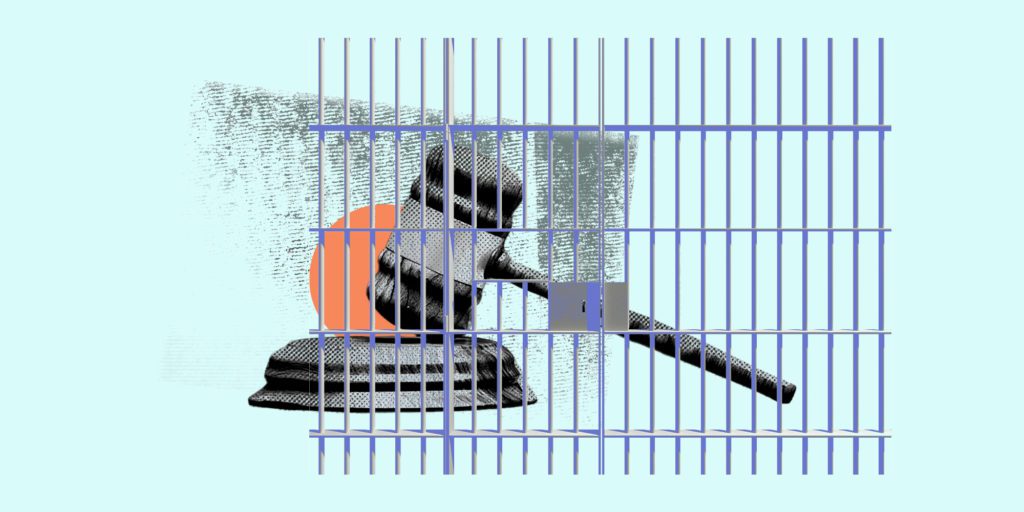I still remember how, in one of his Friday sermons, the preacher at the mosque spoke at great length about the people of Japan, about how God had cursed them with a bad climate and angry nature for being infidels who worship mice. And how, despite all that, they had managed to succeed through hard work.
Since childhood, I have heard praise upon praise being heaped upon the hardworking people of Japan. In schools and universities, by elders in mosques, by priests in churches, and by parents at home, all of them repeating the same words of praise, as if they are trying to motivate themselves and us. We, the children, the boys and young men, create the future, advancing our countries and our religion.
Look at the people of Japan, and learn. A country with rugged geography, an archipelago of islands, mostly mountains, plagued by earthquakes and hurricanes. Look at the “brotherly planet of Japan” and learn how its people overcame difficulties and rose up after the US destroyed them with two nuclear bombs. They started building their state from scratch in conjunction with ours, yet look at where they are, and where we are.
This is the tune when people talk about Japan and its people, about their respect for work and their reverence for (keeping) time. But what do such bright manifestations of success and superiority hide?
The Japanese noticed early on that hard work pushes some people to suddenly die at a young age, due to exhaustion or heart disease. Others commit suicide in order to escape the high level of stress. The phenomenon was scientifically recognized in the 1980s and named “Karoshi,” which means “death from overwork.” Researchers found that some people worked over 80 hours of overtime a month, which affected their physical and psychological health.


Egyptian Karoshi
But we are not here to discuss the Japanese experience in depth. Rather, we are trying to understand the working conditions in giant companies in Egypt, which seem to enjoy an almost absolute power over their employees.
Working conditions differ greatly in a country like Egypt. Every sector has its own characteristics. The public sector, which is allocated a specified state budget, is very unlike private sector companies or the informal sector. Here, we focus only on private companies operating in Egypt.
In contrast to Japan, our government does not pay much attention to working hours and conditions and its impact on citizens’ health. A search on the Internet for data and statistics issued by official bodies did not lead to any result.
The Japanese government has officially recognized the Karoshi phenomenon. It issues annual statistics on the number of victims and the amounts of financial compensation paid to their families. It has also taken measures and enacted legislation to improve the situation.
Suicide
On December 25, 2021, 45-year-old Nour Ashour committed suicide during working hours by throwing himself off the third floor of the Teleperformance headquarters in Cairo.
Read Also:
Founded in 1978 in France, Teleperformance is a multinational offering such services as customer care, technical support, debt collection and social media management. Operating in some 88 countries with a total revenue of over $7 billion in 2021, it is one of the world’s largest call centers. Clients include Amazon, Apple and Uber.
Following Nour’s death, various accounts spread about the reasons for his suicide. All pointed at the pressure at work and the manager who was harassing him, pushing him to resign. One co-worker even said the manager one day summoned Nour to inform him of a salary deduction “because of his frequent visits to the bathroom.”
Gradually Nour could no longer stand the pressure and insults, which prompted him to resign shortly before receiving the annual bonus, which he desperately needed to pay off his debts, colleagues said.
Nour was facing a terrible dilemma: swallowing the daily indignities at a job he hated or resigning and thus no longer having an income to meet his expenses and that of his family. Nour opted for suicide to escape all pressure: professional, financial and family.
A week after the incident, Teleperformance issued a brief statement mourning Nour and acquitting itself of all responsibility. It also claimed it would provide assistance to Nour’s family. We were not able to confirm the truth of that.
The company did not issue another statement. The Egyptian Ministry of Manpower and Migration stated it had conducted an inspection of the company headquarters to ensure safety and health regulations were observed. The Public Prosecution Office statement added nothing new. It only noted that some people preferred to talk to the media about the incident instead of testifying.
Assem Afifi
Nour’s suicide triggered a debate about working conditions in private companies. The victim’s choice to commit suicide in the workplace seemed to be a message. If Nour had committed suicide at home, the story would have disappeared without anyone hearing about it.
Nour’s death did not prompt Egyptian media to put pressure on companies to improve conditions or demand the state to impose stricter laws. The media today tend to only follow the so-called “trend” to attract “traffic.” In addition, most Egyptian newspapers and TV channels are ultimately owned by businessmen who have no interest in knocking and opening certain doors.
Just as the case was about to disappear from the public eye, Universal employee Assem Afifi followed in Nour’s footsteps on the morning of Tuesday, February 22, 2022, by throwing himself in front of a car.
He too had failed to meet the financial needs of his family, as he had not been paid for months.
The last thing he asked for was colleagues’ forgiveness. His debts had accumulated and his creditors showed no mercy, while he did not know what to tell his wife and children about his helpless situation.
When Afifi’s colleagues learned about what happened, some 3,000 of them joined a sit-in at a company headquarters, until security forces moved in and dispersed them with teargas. They even arrested some people, who were released the next day.
The problems for Universal employees had started in September 2021, when they went on strike to protest against the delay in the payment of their salaries. They had not been paid for three months, while incentives and allowances had not been paid for 5 months.
Ever since, the workers have repeatedly gone on strike, trying to obtain their rights, while the Ministry of Manpower and the Egyptian Workers Union have done nothing, and the security forces are generally in the hands of the capital owners.
Teleperformance: Hunger Games
We spoke to a number of former and current Teleperformance employees about the conditions of their work. Serene, a former employee, said the company is always looking for young graduates to answer calls, although there are other jobs less stressful that do not require answering customers all the time, such as following up on social media accounts, responding to emails or other written correspondence.
She did not know how people got those jobs, perhaps through internal recommendations.
Serene worked with two managers.
“They were good to me, contrary to what is customary in the company,” she said. “I was lucky, despite the low salary and irregular working hours. I used to serve customers in English for a monthly salary of 3,500 Egyptian pounds ($222).”
“The Arabic-speaking staff earned less than that,” she continued. “I worked for 8 hours a day, in addition to a one-hour break. There is a maximum of 30 minutes rest. If the employee is one minute late, the progressive deductions start.”
While working at Teleperformance, Serene and several other employees were transferred to another office without being given a reason. When some of them objected, they were given the choice: accept or resign.
According to Serene, the employees’ well being largely depends on how close they are to their manager, which creates an atmosphere of permanent flattery and hypocrisy. Incentives and bonuses are linked to the employee’s success in achieving the “target.”
Those working on social media accounts are required, during peak hours, to respond to customer comments, solve problems and provide assistance in less than five minutes. They also must respond to a certain number of comments during the day. If not, the “target” is not met.
Contracts are for a period of one year only. They can be extended. Or not. “We had social and medical insurance, and there is a doctor at the workplace, but this does not mean a guarantee of medical care,” Serene said, adding that many employees suffer from physical pains and permanent headaches, due to the many hours spent sitting and answering calls.
Meet the Target
Nadia, who worked at Teleperformance from 2012 until 2020, confirmed what Serene said: employees must achieve the “target” in any way possible. It is not acceptable to work less than the standard set by the company, even if due to medical reasons. If you are sick and cannot meet the “target,” you resign. You cannot delay the work and be a burden to the company.
It is not simply accepted for an employee to apologize for not attending due to an accidental or emergency circumstance. The manager must accept the apology, otherwise he or she will be subject to financial retribution and punishment, which may prevent future promotions.
“If my mother is sick in the hospital, it is necessary she calls and apologizes for me not attending, while my manager should agree,” Nadia said. Nadia compared the work situation as the famous movie The Hunger Games.
The “bonus” is paid to employees who achieve the required “target.” But when ten employees achieve their required target only three will get the “bonus.” When the team objected, the company raised the required target for all employees.
After working at Teleperformance for over six years, Nadia was dismissed alongside a large number of other employees, as part of the company policy to reduce the number of employees. This was at the start of the Corona pandemic. Nadia was financially compensated for the remainder of her contract.
Today is Worse
According to Hajar, who currently works for Teleperformance, the nature of “The Hunger Games” has changed. Employees’ salaries in the past were determined according to the number of hours they worked daily. For example, an hour was worth 10 EP pounds, so the working day equaled 90 EP ($5.73).
This system was recently modified. Rather unfairly, the salaries of customer service employees are now determined on the basis of the number of calls they receive. Consequently, on the days when they receive few calls, they receive little money, without any consideration for the time it takes out of their lives.
Hajar explained her monthly salary used to be 3,000 EP ($190). After the system was amended, her salary fluctuates between 1,000 and 1,500 EP ($64 to $95), which is well below the legal minimum wage set at 2,400 EP (153 USD). Even overtime is now paid based on the number of calls received.
In other words, if you spend a full hour at work but only receive one call, you make two EP ($0.13).
According to Hajar, Nour Ashour’s suicide did change one thing.
Teleperformance recently informed employees that there is a psychiatrist available at the company’s headquarters for anyone who needs help … or get a pill when stressed.
Read Also:







